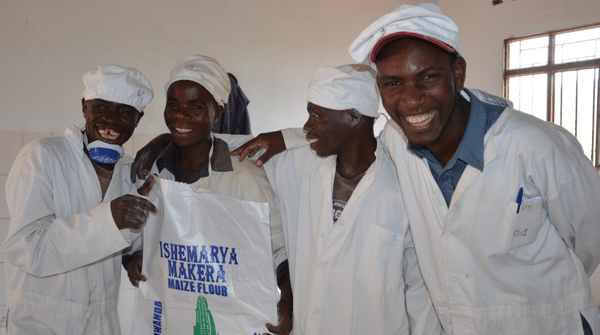
Term
- 4 years
Years
- 2012-2017
Direct Beneficiaries
- 18000
Implementation Partners
Financial Partners

Smallholder farmers in drought- and flood-prone regions of Rwanda are struggling to meet their nutritional needs. Women and young children are particularly affected and are unable to reach their full potential.
Despite 7.5% economic growth in 2010 in Rwanda, an estimated 56% of Rwandans still live below the poverty line, with about 37% classified as extremely poor. In addition, food insecurity remains a significant threat in Rwanda. In response to growing food insecurity, the government is encouraging more Agricultural cooperative enterprises.
However, few cooperatives have the financial or organizational capacity to identify and effectively access markets for members’ commodities. In particular, these cooperatives do not serve women members’ needs effectively.
Rwanda Co-operative Agricultural Growth Project (RCAG) is a five-year project to improve food security among smallholder women and men co-op farmers growing rice and maize in six districts of rural Rwanda.
The project supported Rwanda’s Vision 2020 to become a middle-income country by improving the country’s food security and nutritional status, reducing poverty, and increasing rural incomes.
RCAG aims to strengthen 15 farmer-owned and managed cooperative enterprises to deliver the tools their members need to become food secure. The project will provide the skills to grow better and more productive crops, storage and drying facilities to maximize crop values and sales, and access to financial and marketing services to obtain higher household incomes.



